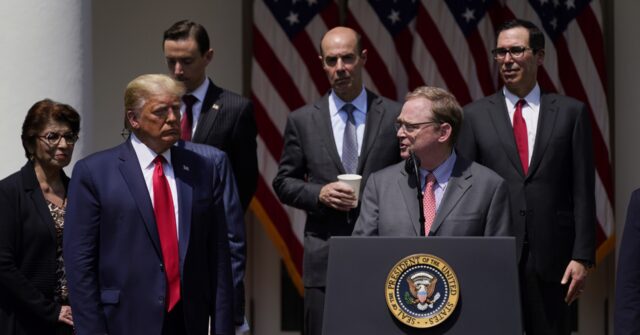In a strategic move to solidify his economic team, President-elect Donald Trump announced the appointment of key officials on Tuesday, placing a strong emphasis on experience in navigating critical economic matters, particularly income taxes and tariffs. Jamieson Greer, an international trade attorney, is set to become the U.S. trade representative, while Kevin Hassett has been appointed as the director of the White House National Economic Council. These selections indicate Trump’s recognition of the need to restore public confidence in the economy, especially as his administration prepares to implement its economic agenda in a politically charged environment. Other notable appointments include Vince Haley for the Domestic Policy Council, reflecting a mix of both loyalty and experience in Trump’s decision-making.
Greer’s background as chief of staff to former trade representative Robert Lighthizer underscores his expertise in trade policy, particularly his role in implementing tariffs against China and other nations. His selection also aligns with Trump’s commitment to advocating for American workers through stronger trade policies. If confirmed, Greer will engage directly with foreign governments to negotiate trade agreements and address disputes, thus playing a crucial role in shaping American trade policy moving forward. His previous statements regarding tariffs showcase an inclination towards using them as a means to protect U.S. manufacturing jobs, suggesting a continuity of Trump’s protectionist trade strategies.
In addition to Greer’s anticipated role, Kevin Hassett brings a wealth of economic knowledge to the administration, having previously served as chairman of the Council of Economic Advisers. His economic philosophy revolves around tax cuts and fiscal policy aimed at bolstering household incomes amid rising inflation. Trump emphasized Hassett’s importance in helping American families recover from what he described as the economic repercussions of the Biden administration. Hassett’s reappointment is significant, especially as the administration seeks to renew and expand the 2017 tax cuts, which are set to expire in a few years.
Hassett’s experience and academic achievements provide a foundation for addressing economic challenges, particularly in the face of existing budget deficits exacerbated by tax cuts. While he has attributed successful income growth to the tax cuts, concerns linger regarding the sustainability of federal borrowing and the potential for increased deficits stemming from the administration’s fiscal policies. This situation presents a formidable challenge as the administration endeavors to maintain low inflation rates while implementing tax strategies that may further strain the national debt.
Alongside these major appointments, Trump also announced other key personnel choices, including John Phelan as Navy secretary. Phelan’s background as a private investor and co-founder of a significant investment firm indicates a potential focus on economic and strategic matters for the military, though details regarding his previous military experience remain unclear. This appointment, while not directly tied to fiscal policy, underscores Trump’s broader strategy of filling his cabinet with individuals who have substantial influence in both the private sector and public service.
In summary, these latest appointments reflect Trump’s ongoing commitment to economic policy that prioritizes American workers and seeks to enhance public confidence in the economy. By bringing in seasoned officials like Greer and Hassett, the administration aims to navigate complex trade negotiations and fiscal challenges while attempting to stimulate economic growth through tax reforms. As the new administration embarks on its term, it will face the dual mandate of promoting fiscal discipline while also addressing the pressing needs of American families in a rapidly changing economic landscape.

